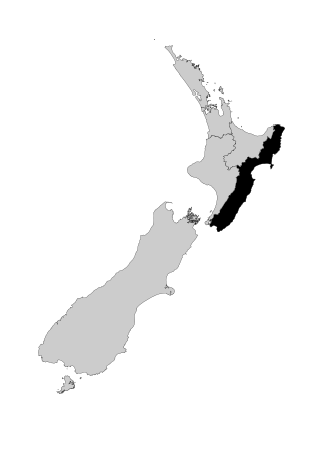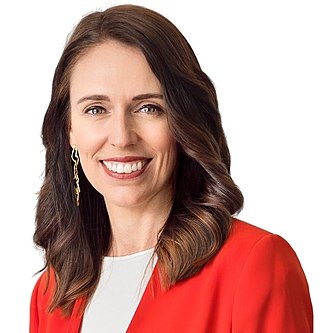
The Workers Party of New Zealand was a socialist political party in New Zealand. It published a monthly magazine called "The Spark". In February 2013 the party was transformed from a "mass workers party" to a "fighting propaganda group". The organisation was subsequently renamed Fightback.

The 1996 New Zealand general election was held on 12 October 1996 to determine the composition of the 45th New Zealand Parliament. It was notable for being the first election to be held under the new mixed-member proportional (MMP) electoral system, and produced a parliament considerably more diverse than previous elections. Under the new MMP system, 65 members were elected in single-member districts by first-past-the-post voting, while a further 55 "top-up" members were allocated from closed lists to achieve a proportional distribution based on each party's share of the nationwide party vote.
Te Pāti Māori, also known as the Māori Party, is a political party in New Zealand advocating Māori rights. With the exception of a handful of general electorates, Te Pāti Māori contests the reserved Māori electorates, in which its main rival is the Labour Party.

Coromandel is a New Zealand electoral division returning one member to the House of Representatives. It is currently represented by Scott Simpson, a member of the National Party.

Mana is a New Zealand parliamentary electorate in the Wellington metropolitan area. It has been held by Barbara Edmonds of the Labour Party since the 2020 election.

Nelson is a New Zealand parliamentary electorate, returning one Member of Parliament to the House of Representatives of New Zealand. From 1853 to 1860, the electorate was called Town of Nelson. From 1860 to 1881, it was City of Nelson. The electorate is the only one that has continuously existed since the 1st Parliament in 1853.

West Coast-Tasman is a New Zealand parliamentary electorate. Since its formation for the 1996 election, it has been held by Damien O'Connor of the Labour Party apart from one parliamentary term, when National's Chris Auchinvole was the representative from 2008 to 2011.

Ikaroa-Rāwhiti is a New Zealand parliamentary Māori electorate that was formed for the 1999 election. It covers the eastern North Island from East Cape south through Hawke's Bay and the Wairarapa to Wainuiomata and most of the Hutt Valley, but not southern Lower Hutt or Wellington City.

Seventy members of the New Zealand House of Representatives elected in the 2011 general election were from single member constituencies, the same number as in 2008. The initial composition of the 2008 Parliament gave the National Party 41 seats, the Labour Party 21, the Māori Party five and ACT, United Future and the Progressive Party one each.
The Mana Movement, originally known as the Mana Party, is a former political party in New Zealand. The party was led by Hone Harawira who formed it in April 2011 following his resignation from the Māori Party. Harawira won the by-election in Te Tai Tokerau of 25 June 2011 for the Mana Party and retained the seat during the 2011 general election in November.

Heather Janet Logie is a New Zealand politician and a member of the New Zealand House of Representatives. She is a member of the Green Party of Aotearoa New Zealand.
The Aotearoa NZ Youth Party or Aotearoa NZ Youth Independence Party was an unregistered political party in New Zealand. The party was the vehicle of "professional stirrer" Robert Terry of Reefton, who has contested elections on and off since 1998. Terry has received convictions for assault, bomb threats, and multiple threats to behead people.

The Internet Party was a registered political party in New Zealand that promoted Internet freedom and privacy. The party was founded in January 2014 with the financial support and promotion of internet entrepreneur Kim Dotcom, and was first led by former Alliance MP Laila Harré, then by citizen journalist Suzie Dawson.

The 2014 New Zealand general election, which was held on 20 September 2014, saw the election of 121 candidates — 71 from electorates, 1 overhang, and the remaining 49 from ranked party lists. This page lists candidates by party, including their ranking by party list where applicable.

The 2020 New Zealand general election was held on Saturday 17 October 2020 to determine the composition of the 53rd New Zealand Parliament. Voters elected 120 members to the House of Representatives, 72 from single-member electorates and 48 from closed party lists. Two referendums, one on the personal use of cannabis and one on euthanasia, were also held on the same day. Official results of the election and referendums were released on 6 November.

This page lists candidates contesting electorates in the 2020 New Zealand general election.

The Integrity Party of Aotearoa New Zealand (TIPANZ) was an unregistered political party in New Zealand. It was a progressive-centrist party, with an ideology of Hauora (well-being), equality, and integrity. It was led by Helen Cartwright with Troy Mihaka as deputy.
The Attica Project was an unregistered political party in New Zealand.

This page lists candidates contesting electorates in the 2023 New Zealand general election.












